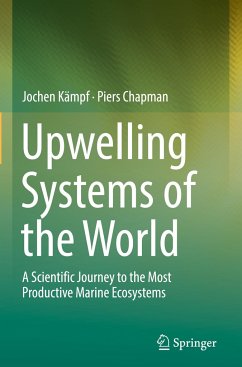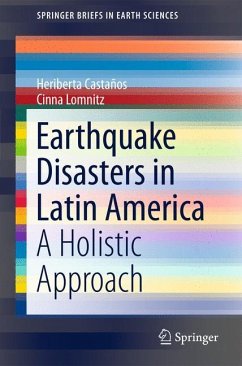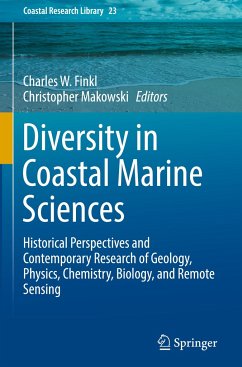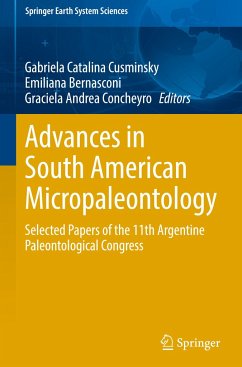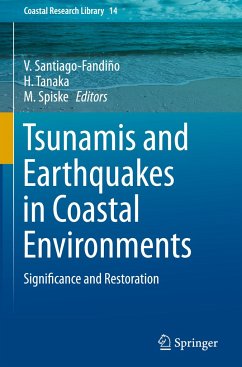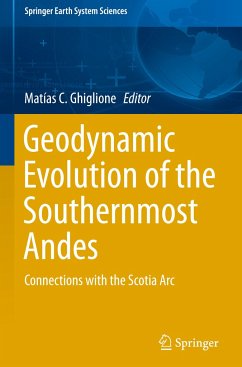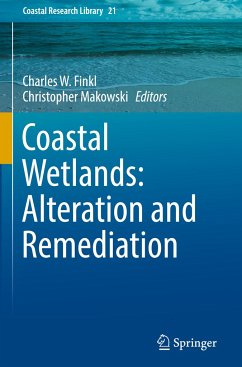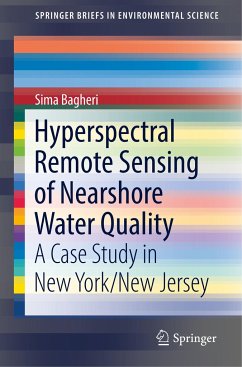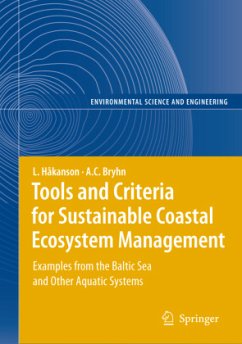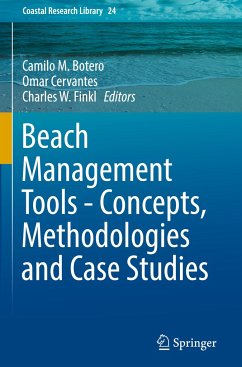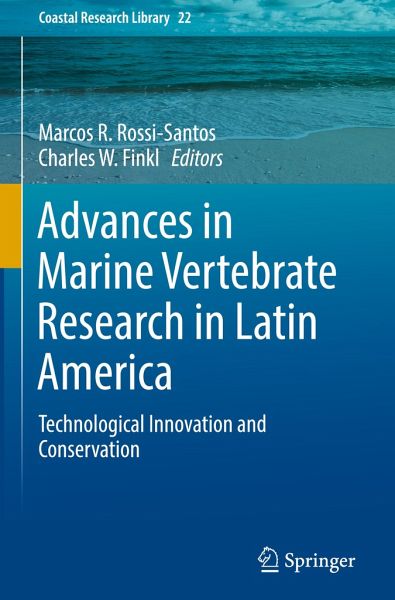
Advances in Marine Vertebrate Research in Latin America
Technological Innovation and Conservation
Herausgegeben: Rossi-Santos, Marcos R.; Finkl, Charles W.

PAYBACK Punkte
57 °P sammeln!
This book gathers the most recent research findings on ecology and conservation of marine vertebrates in Latin America, making use of high technological methods to show readers the diversity of the marine research that has been conducted in these countries over the last decades. The book brings authors from more than 23 institutions of 7 different countries developing the most diverse research aiming at ocean conservation through the ecology of different vertebrate animals, such as whales, dolphins, manatees, turtles, seabirds and fish.This book deals with technological advances and innovation...
This book gathers the most recent research findings on ecology and conservation of marine vertebrates in Latin America, making use of high technological methods to show readers the diversity of the marine research that has been conducted in these countries over the last decades. The book brings authors from more than 23 institutions of 7 different countries developing the most diverse research aiming at ocean conservation through the ecology of different vertebrate animals, such as whales, dolphins, manatees, turtles, seabirds and fish.
This book deals with technological advances and innovation in the ecology and conservation of marine vertebrates in Latin America. This eclectic collection is broad in scope but provides detailed summaries of new methods that are deployed in the study of marine environmental conservation. Key issues revolve around the development and application of educational methodologies in the field of marine vertebrate research, which provide a rational basis for better management of marine environments using modern techniques associated with GIS, satellite tracking, aerial systems, bioacoustics, biogeochemistry, genetics, underwater videography, species photoidentification, molecular biology, trophic ecological methods, ethological methods, and behavioural ecology, among others. Discussion and elucidation of these kinds of techniques are aimed at university-level students and post-graduate researchers. The scope of this volume includes whales, sharks, rays, dolphins, tropical fishes, turtles, manatees as well as aspects of Latin American marine ecosystem conservation. Researchers in this biogeographic region, as well as others involved with marine vertebrate research, will find this work essential reading.
This book deals with technological advances and innovation in the ecology and conservation of marine vertebrates in Latin America. This eclectic collection is broad in scope but provides detailed summaries of new methods that are deployed in the study of marine environmental conservation. Key issues revolve around the development and application of educational methodologies in the field of marine vertebrate research, which provide a rational basis for better management of marine environments using modern techniques associated with GIS, satellite tracking, aerial systems, bioacoustics, biogeochemistry, genetics, underwater videography, species photoidentification, molecular biology, trophic ecological methods, ethological methods, and behavioural ecology, among others. Discussion and elucidation of these kinds of techniques are aimed at university-level students and post-graduate researchers. The scope of this volume includes whales, sharks, rays, dolphins, tropical fishes, turtles, manatees as well as aspects of Latin American marine ecosystem conservation. Researchers in this biogeographic region, as well as others involved with marine vertebrate research, will find this work essential reading.



